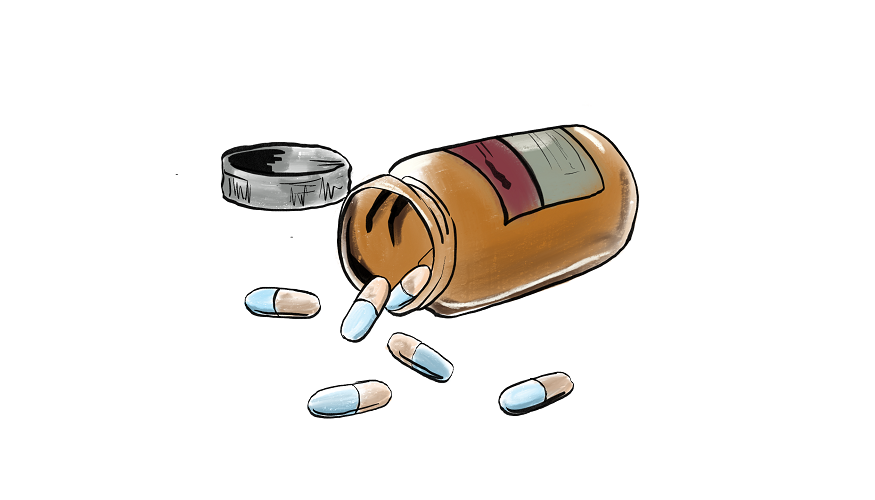Opinion: The culture of Adderall abuse in college
It was about three years ago — fall quarter of my freshman year — when I first discovered the power of Adderall. I was fairly new to the whole college life and it was my first time being away from home. I wanted to make new friends and attend all of the school events while being a super student — but it didn’t go as planned.
Halfway through my first quarter, my grades fell below average. I was hardly passing my accounting class and had a bunch of presentations to do — which for me was very nerve-wracking because I had never liked public speaking. But for some reason — when I was on Adderall — I didn’t care. I could present whatever topic without hesitation. I could finish a 10-page paper in less than a day, and I was able to study for hours on end without being distracted. I felt like the very best version of myself.
Almost everyone I know has taken Adderall before. It was astonishing how many people in college were popping the study drug just to survive finals week. A study from the 2016 National Drug Use and Health found college students abuse Adderall at twice the rate of those who aren’t in college.
These crunch-time pills are like an unofficial university currency. Most people know at least one person who has a prescription for Adderall, and it isn’t a hard drug to get prescribed to. Many students even lie to their doctors in order to obtain an Adderall prescription.
Adderall is easily accessible — it’s affordable, and it does the work it needs to do in order for students to ‘succeed’ in life. So how could you not pass up a drug that guarantees success? Especially when students are constantly pressured to succeed — not only by the universities, but also by their families and societal standards. The pressure on students to be better, faster and smarter than the rest is leading them to rely on medication like Adderall to ace a test or finish a paper.
Universities must better educate their students about the potential dangers of misusing prescription ADHD medications, such as Adderall. In a 2008 study of 1,800 college students, 81 percent of students that were interviewed thought illicit use of ADHD medication was not dangerous. Yet a drug like Adderall is considered a Class Two controlled substances — the same class as cocaine, meth and morphine. The negative side effects of Adderall misuse can lead to serious long term consequences such as high blood pressure, depression, stroke, seizures, hypertension, sexual dysfunction and much more.
As the Adderall epidemic continues to grow and the pressure to be the best’ remains, universities must acknowledge this campus drug abuse and take action to prevent it. No one intends to become addicted to Adderall — but in a culture that pressures us to be perfect, how could you say no?




